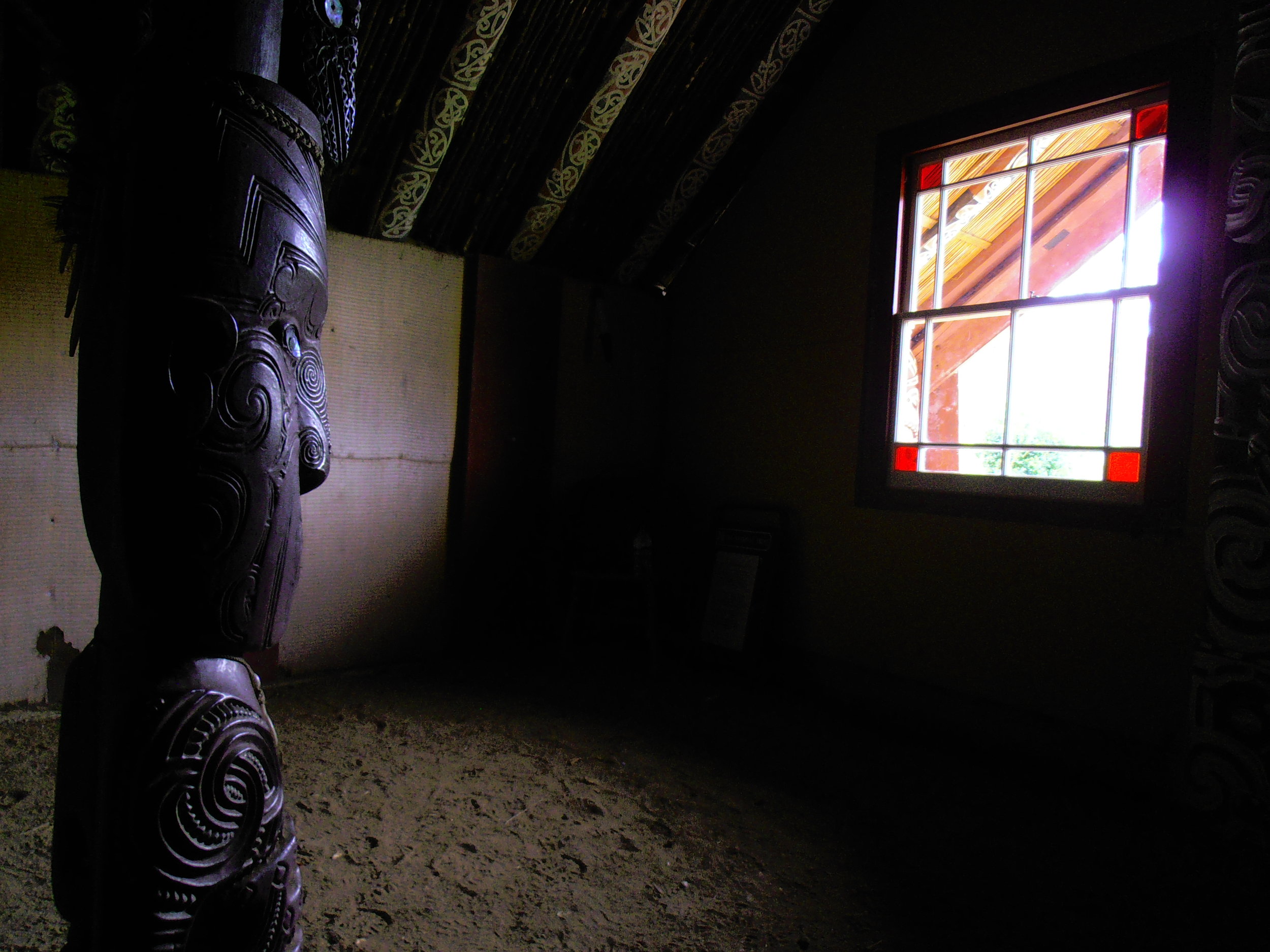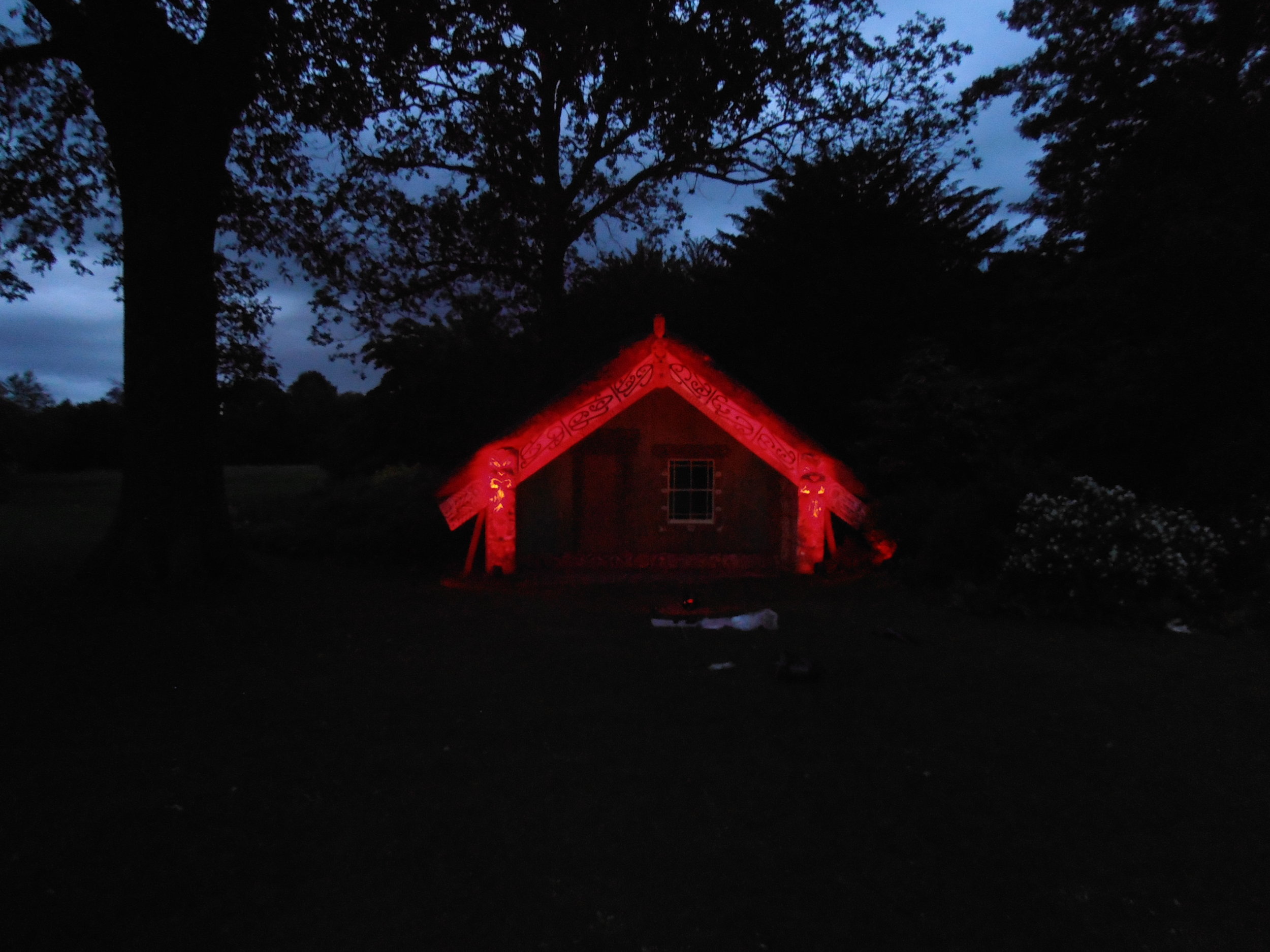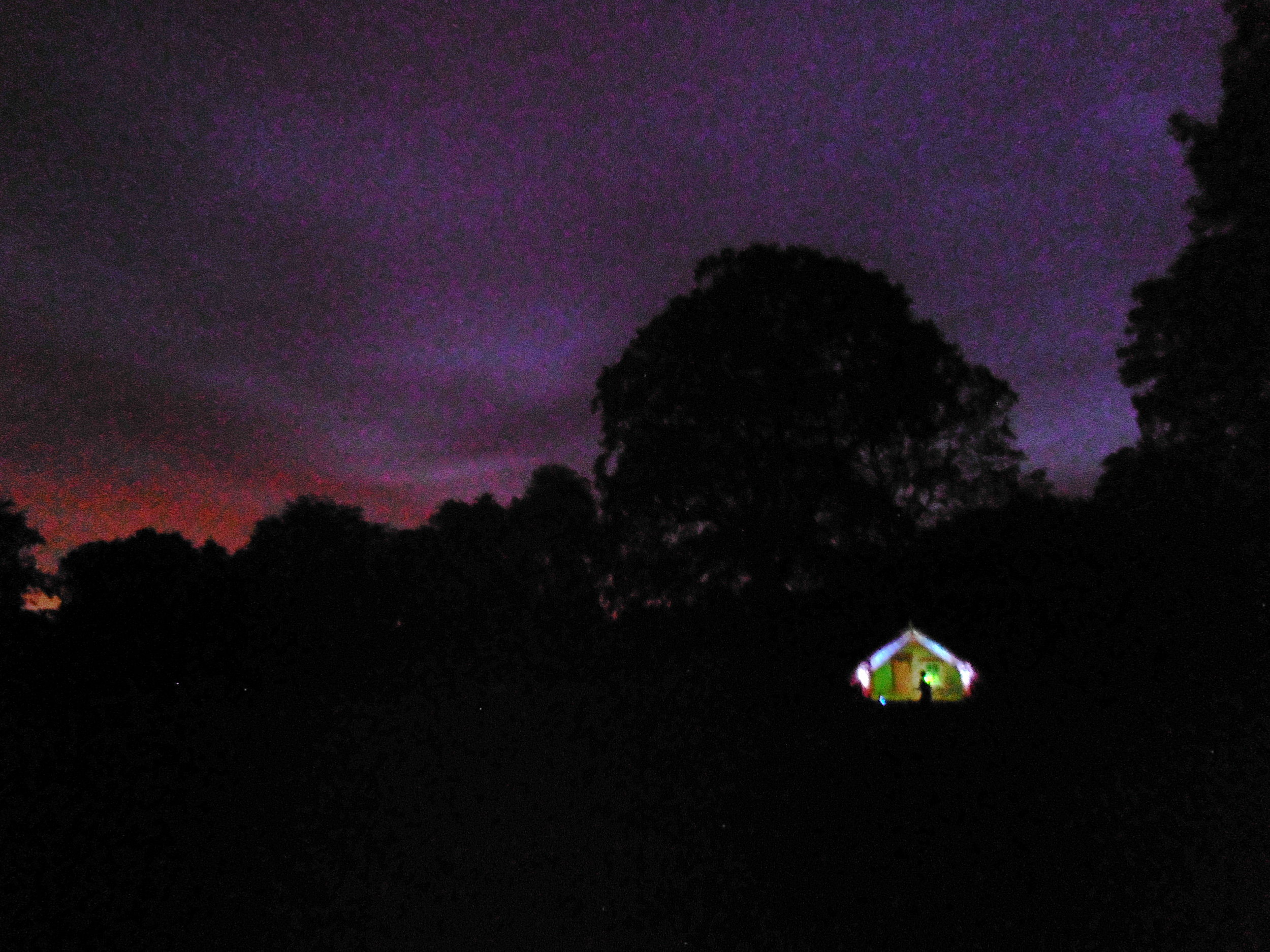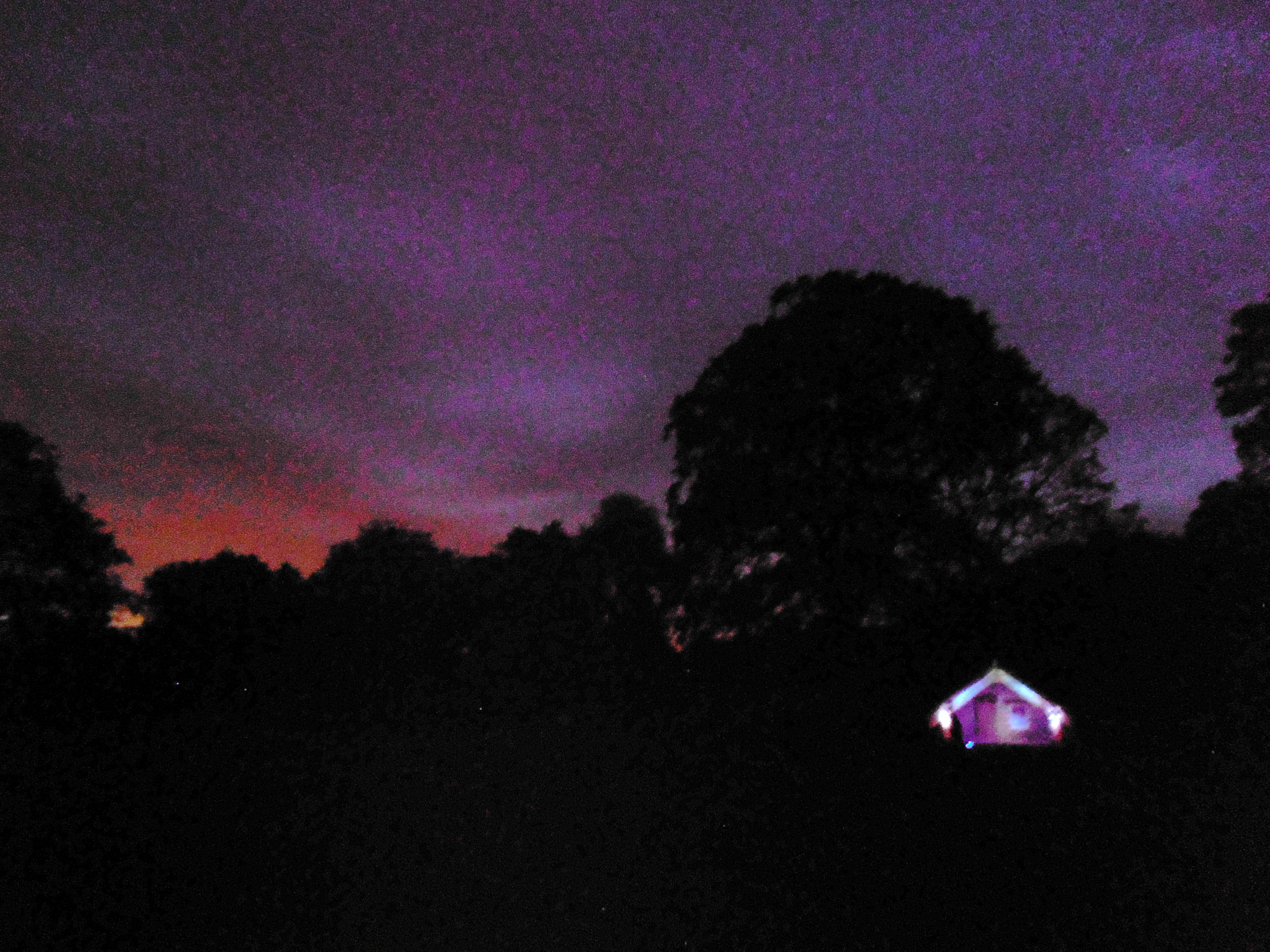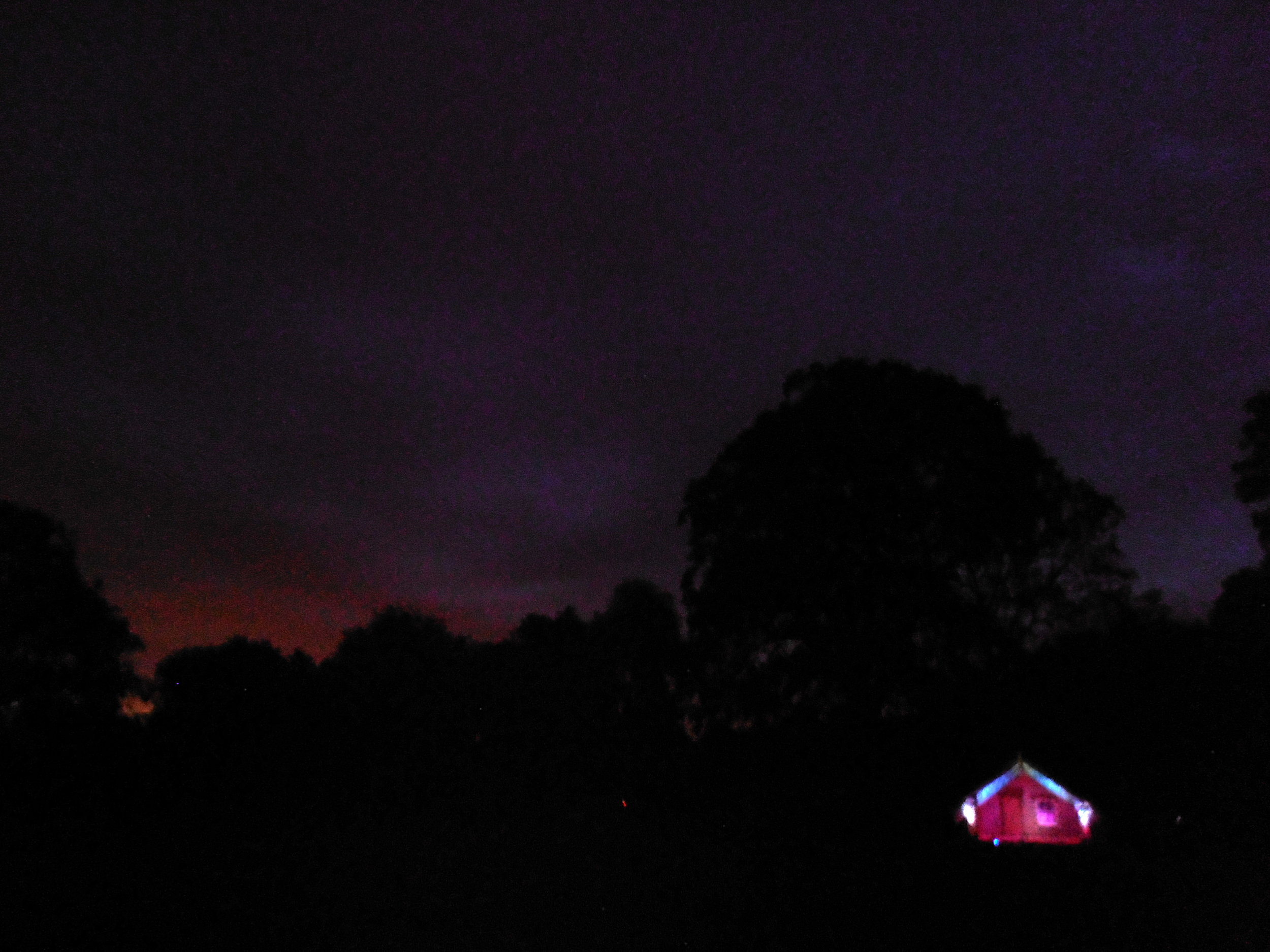"Our message is simple allow the universal song of love and creativity to flow in all places and be heard by all things. Even the rocks will respond. The birds of the air, the tallest trees, the tiniest organisms, all will sing and rejoice. The hardest of hearts will be softened and the densest, darkest forces of hate redeemed. This song is eternal. This song will never be quelled. You dear child must sing this song more loudly and more often. Let the tune of the heavens reverberate throughout your being dear beautiful child."
I am the House the House is Me
The 9th June 2014 I am surrounded by 90 school children. We are visiting Hinemihi a Maori Meeting House in Clandon Park, Surrey, U.K. For the past year I have been artist in-residence at a Church of England Primary in West London leading an religious education and art project to build new prayer stations for their school. The project started with the children looking at examples of houses of prayer which included East London Mosque, Saint Paul's Cathedral, Bevis Marks Synagogue, Neasden Temple, Buddhapadippa Temple, and Hinemihi. I wanted to expand the children's perceptions of sacred and religious space. The children were particularly intrigued by Hinemihi.
I shared the story of Hinemihi and how she had sheltered people during the Tarawera eruption in 1886 including my great great grandmother Taima Te Ngahue and my great great Uncle Tene Waitere who had been one of the men who had carved Hinemihi. I described how Lord Onslow had bought Hinemihi from Te Wairoa, New Zealand back to Clandon Park his country estate in England as a memento of his time in Aotearoa as Governor General. As I swiftly moved through her history the children listened intently as I described how Hinemihi had been used as a garden shed and a children's play house. How when she first arrived at Clandon she had been reassembled incorrectly but was put back together by Maori soldiers recuperating at Clandon which had become a military hospital during the 1st World War. Moving into the present the children were pleased to hear that Hinemihi had not been forgotten and that many expat New Zealanders often made a pilgrimage to Hinemihi and that for Maori she is incredibly important and loved. Believed a living presence Hinemihi stands as a symbol of the old and the new world. She is an ancestress.
After the children had left Clandon Park my time with Hinemihi continued. I had visited her a number of times in the past but this night which was the 128th anniversary of the eruption I would be staying, sleeping alone within her embrace. It wasn't going to be a comfortable night though as there was no electricity, no flooring just a compact dirt floor and she leaked when it rained. Also as instructed by my cousin it was traditional to sleep on the left hand side which meant my sleeping mat was right near a small green box which fed poison to poor unsuspecting rodents. However to counter the uncomfortable night before me I would also be part of a dawn ceremony organised by people from Massey University which would involve a light installation and a recording of the dawn chorus from New Zealand. I settled down for the night.
I awoke to the sound of people moving and talking. I got up and opened the door to see a woman and a large group behind her, all maori. The woman appeared friendly and inquisitive. She looked at me and then with a movement of her head gestured as to who else was inside.
I was expecting to have dreams while at Hinemihi but this dream was something different. I had experienced it as if I was actually there. I could see the walls and details of the carvings and the interior of the wharenui. When I opened the door the view was the same as if awake. Nothing was different except the crowd of people and woman who appeared. Timeless, other, different and yet present.
I awoke to lights flickering inside the wharenui and singing. Awake or dreaming? I got up and headed outside. Figures moved in the dawn light. Still groggy with sleep I wandered across the lawn of Clandon towards Stuart and Kura. It was Kura singing. She was sending a karanga (a call, a summons) to the dawn, to Hinemihi, to space and to me. A karanga to pierce through dimensions physical and spiritual. Awake I watched the sun rise and listened to the dawn chorus.
Whakarongo ake au As I listen
Ki te tangi a te manu nei To the message of the bird called
A te matui the Tui
Tui Tui Tui
Tuia Tuia I runga I listen with intent
Tuia I raro To the spiritual elements of the
Tuia I roto message (runga)
Tuia I waho To the worldly (raro) *
to the elusive (roto) inner space [1]*
to the physical (waho) outer space
Tuia ke te here tangata connecting to our origins [2]
Ka rongo te Pō The message is relevant throughout
Ka rongo te ao the universe
Tihei Mauri ora behold the essence of life
Outer space: physical world innerspace : metaphysical knowing
Tuia : a weaving term: stitching
Fantastic day and dreamlike night at Hinemihi, Clandon Park.Light and sound installation at Hinemihi by Kura Puke and Stuart Foster, Massey University, New Zealand. 2014.photos and video Regan O'Callaghan
Do you hear the Tui call the Huia in the trees
In the weeks before she died my grandmother saw a Ruru in her room, an owl I believed this was a good omen a messenger. My grandmother also saw lots of people come to visit her, people that most others didn't see. But it was the Tuis heard by my sister around our grandmother's house and in the trees that seemed to have the clearest of messages. Waking before dawn still adjusting to a new time zone and re-awkening to an old world I too would hear them call. Their song a melodic chorus reminded me of their visits to the Kowhai tree which grew outside my childhood home. An iridescent blue black with a white tuff around its neck it is easy to see why the early european settlers called the Tui the Parson Bird. The Tui though has much more to offer than religious platitudes. My grandmother was going blind so hearing their dawn chorus must have been a comfort and a soothing sound to wake to.
The Tui is endemic to New Zealand. Other native song-birds include the Kokako, the Piopio and the Huia the latter two both now extinct. The story goes the Huia was the first to sing the dawn chorus. Once it had called out to the rising sun the other birds would join in. We can only imagine what the sound must have been like. Today we hear a fraction of this song and it is the Tui which has taken the role the Huia once claimed.
My grandmother was impatient to die declaring that neither God nor the devil wanted her but she still had things to do and tasks to complete so she lingered longer than anyone imagined. People from the past and present sought her company knowing that the old woman would soon be travelling on. Before I returned to New Zealand she came to visit in my dreams. In one she called out in fear of the dark but was soon comforted by a beautiful light and the arrival of a large ship. In another we sat in my great grandmother Rongoheikume's wharenui while my grandmother sat reminiscing with my grandfather who had passed many years previously. In the last she came just before I woke to say goodbye.
My grandmother was superstitious. Once when we gathered in her dining room upon hearing of the death of a family member a Piwakawaka flew in and circled above us chatting before flitting out. She didn't like this. Nor did she like peacock feathers as she believed they brought bad luck. And as she got older her home became a place of memories of people who had died and she became a little afraid. Afraid of the dark.
The Tui's call at dawn must have been a heart warming sound for a woman whose world was becoming smaller and darker as her eyesight failed her. Refusing to move out of her home, she dwelt in a place which must have felt desolate at times but for the blessing of her carer a devoted and loving woman and the visits of family and friends. My grandmother persevered.
When I visited earlier in the year I could see she was getting ready to travel light. Letting go of hurts and giving thanks for life my grandmother was ready to die. Philosophical and with a wicked sense of humour she had journeyed through a life at times treacherous and dark but she carried on. She was tough, her mind and heart ticking over with a steady beat. Even close to death she requested she be woken if a visitor came to see her. She loved people and in her last few months she had a steady stream of visitors. I believe she also found the visits of the Ruru and Tui a blessing but more than anything it was the song of the Huia I hoped and imagined she would wake to. The song of a gatekeeper to the seventh heaven the Huia would be the guardian which when the time came would carry my grandmother up through the trees and beyond to a place where she would rest and laugh and be.
On an overcast day we gathered. The women of the family carried her coffin out of the house and the men carried her into the chapel. I stood before them as a priest and a grandson. Family spoke and sang, cousins offered beautiful words and prayers in maori, a poem written by my brother inspired and an Irish blessing was shared. And as we lowered the coffin into the grave on the day that was also my birthday I imagined her, glint in eye with a glass of vodka in one hand regaling all with rude stories and naughty jokes and I smiled.
BEANNACHT (Irish for blessing) by John O'Donohue
On the day when The weight deadens On your shoulders And you stumble, May the clay dance To balance you.
And when your eyes Freeze behind The grey window And the ghost of loss Gets into you, May a flock of colours, Indigo, red, greenAnd azure blue, Come to awaken in you A meadow of delight.
When the canvas frays In the currach of thought And a stain of ocean Blackens beneath you, May there come across the waters A path of yellow moonlight To bring you safely home.
May the nourishment of the earth be yours, May the clarity of light be yours, May the fluency of the ocean be yours, May the protection of the ancestors be yours. And so may a slow Wind work these words Of love around you, An invisible cloak To mind your life.
Photo of Lake Taupo by Hana Ransfield.
"Do you hear the Tui call the Huia in the Trees" Words from the Song "Reconnect" by Maisey Rika.
Wharenui - House
Piwakawaka - Faintail (type of bird)












